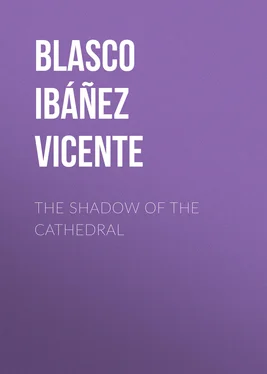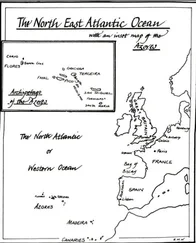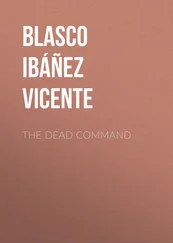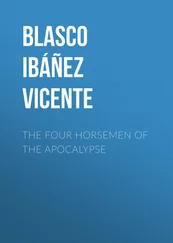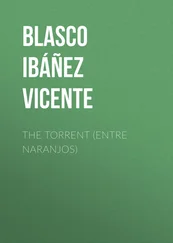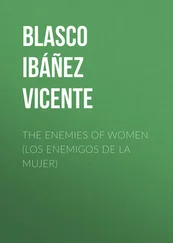Vicente Blasco Ibáñez - The Shadow of the Cathedral
Здесь есть возможность читать онлайн «Vicente Blasco Ibáñez - The Shadow of the Cathedral» — ознакомительный отрывок электронной книги совершенно бесплатно, а после прочтения отрывка купить полную версию. В некоторых случаях можно слушать аудио, скачать через торрент в формате fb2 и присутствует краткое содержание. Жанр: foreign_prose, foreign_antique, на английском языке. Описание произведения, (предисловие) а так же отзывы посетителей доступны на портале библиотеки ЛибКат.
- Название:The Shadow of the Cathedral
- Автор:
- Жанр:
- Год:неизвестен
- ISBN:нет данных
- Рейтинг книги:4 / 5. Голосов: 1
-
Избранное:Добавить в избранное
- Отзывы:
-
Ваша оценка:
- 80
- 1
- 2
- 3
- 4
- 5
The Shadow of the Cathedral: краткое содержание, описание и аннотация
Предлагаем к чтению аннотацию, описание, краткое содержание или предисловие (зависит от того, что написал сам автор книги «The Shadow of the Cathedral»). Если вы не нашли необходимую информацию о книге — напишите в комментариях, мы постараемся отыскать её.
The Shadow of the Cathedral — читать онлайн ознакомительный отрывок
Ниже представлен текст книги, разбитый по страницам. Система сохранения места последней прочитанной страницы, позволяет с удобством читать онлайн бесплатно книгу «The Shadow of the Cathedral», без необходимости каждый раз заново искать на чём Вы остановились. Поставьте закладку, и сможете в любой момент перейти на страницу, на которой закончили чтение.
Интервал:
Закладка:
The common danger, the misery of the interminable marches to deceive the enemy, the scarcity suffered in the barren fields and on the rough hilltops on which they took refuge, made them all equals, enthusiasts, sceptics or rustics. They all felt the same desire to compensate themselves for their privations, to appease the ravenous beast they felt inside, awakened and irritated by a life of such sudden changes; as much by the wild abundance and plundering of a sack as by the distress endured in the long marches over interminable plains without ever seeing the slightest sign of life. On entering a town they would shout, "Long live religion," but on the slightest provocation they would do this, that and the other in the name of God and all the saints, not omitting in their filthy oaths to swear by everything most sacred in that same religion.
Gabriel, who soon became accustomed to this wandering life, ceased to feel shocked. The former scruples of the seminarist vanished, smothered under the crust of the fighting man, which became hardened with war.
The romantic figure of Doña Blanca, the king's sister-in-law passed before him, like a person in a novel; in her romantic energy this princess wished to emulate the deeds of the heroines of La Vendeé, and mounted on a small white horse, her pistol in her belt, and the white scarf tied over her floating tresses, she put herself at the head of these armed bands, who revived in the centre of the Peninsula the strife of almost prehistoric times. The flutter of the dark riding-habit of this heroine served as a standard to the battalions of Zouaves, to the troop of French, German, and Italian adventurers, the scum of all the wars on the globe, who found it pleasanter to follow a woman anxious for fame than to enlist themselves into the foreign legion of Algeria.
The assault of Cuenca, the sole victory of the campaign, made a deep impression on Gabriel's memory; the troops of men wearing the scarf, after they had knocked down the ramparts as weak as mud walls, rushed like overflowing streams through the streets. The firing from the windows could not stop them; they rushed in pale, with discoloured lips and eyes brilliant with homicidal mania, the danger overcome, and the knowledge that they were at length masters of the place drove them mad; the doors of the houses fell under their blows, terrified men rushed out to be pierced with bayonets in the streets, and in the houses you could see women struggling in the arms of the assailants, striking them in the face with one hand, while with the other they struggled to retain their clothes.
Gabriel saw how the roughest of the mountaineers destroyed in the Institute all the apparatus of the Cabinet of Physical Science, breaking it in pieces. They were furious with these inventions of the evil one, with which they thought the unbelievers communicated with the Government of Madrid, and they smashed on the ground with the butt ends of their muskets, and trampled with their feet, all the gilt wheels of the apparatus, and all the discs and batteries of electricity.
The seminarist was delighted at all this destruction; he also hated, but it was with a calm, reflective hate bred in the seminary, all positive and material sciences, for the sum total of his reasoning was that they came perilously near to the negation of God; those sons of the mountains in their blessed ignorance, had without knowing it done a great deed. Ah! if only the whole nation would imitate them! In former times there were none of these ridiculous inventions of science, and Spain was far happier. To live a holy life, the learning of the priests and the ignorance of the people was sufficient, for both together produced a blessed tranquillity; what did they want more? For so the country had existed for centuries, all through the most glorious period of its existence.
The war came to an end, the closely pursued rebels passed through the centre of Catalonia and were finally driven over the frontier, where they were compelled to give up their arms to the French custom-house officers. Many availed themselves of the amnesty, anxious to return to their own homes. Mariano, the bell-ringer, was one of these. He did not wish to live in a foreign land; besides, during his absence his father had died, and it was extremely probable that he might succeed to the charge of the Cathedral tower if he laid due stress on the merits of his family, his three years' campaigning for the sake of religion, and a wound he had received in his leg; he would really be able to compare himself with the martyrs for Christianity.
Gabriel preferred emigration. "He was an officer and therefore could not take the oath of allegiance to a usurping dynasty." This declaration he made with all the pride learnt in this caricature of an army, which emphasised all the ceremonies of ancient warfare, and who, ragged and shoeless as they were, with their swords by their sides, never failed to transmit orders to each other as "high-born officer." But the real reason which prevented Luna from returning to Toledo was that he wished to follow the course of events, to see new countries and different customs. To return to the Cathedral would mean to remain there for ever, to renounce everything in life, and he, who during the war had tasted of worldly delights, had no desire to turn his back on them quite so soon; also he was not yet of age, so he had plenty of time before him in which to finish his studies; the priesthood was a sure retreat, but one to which he was in no hurry to return just at present; besides, his mother was dead, and his brother's letters told him of no alteration in the sleepy life of the upper cloister, beyond that the gardener was married and that the "Wooden Staff" was courting a girl in the Claverias, it being against all the good traditions of these people to ally themselves with anyone outside the Cathedral.
Luna lived for more than a year in the emigrants' cantonments; his classical education and the sympathy aroused by his youth smoothed his path to a certain extent; he talked Latin with the French abbés, who were delighted to hear about the war from the young theologian, and at the same time they taught him the language of the country. These friends procured for him Spanish lessons among the upper middle classes who were friendly to the Church. In these days of penury he was saved by his friendship with an old legitimist Countess, who invited him to spend several days in her country house, introducing the warlike seminarist to all the grave and pious friends at her assemblies as though he had been a crusader newly returned from Palestine.
Gabriel's great desire was to go to Paris; his life in France had radically changed his ideas, he really felt as though he had fallen into a new planet. Accustomed to the monotonous life in the seminary, and to the nomadic existence during that mountainous and inglorious war, he was astonished at the material progress, the refinement of civilisation, the culture and the well-being of the people in France. He remembered now with shame his Spanish ignorance, all that Castilian phantasmagoria, fed by lying literature, that had made him believe that Spain was the first country in the world, and its people the noblest and bravest, and that all the other nations were a sort of wretched mob, created by God to be victims of heresy, and to receive overwhelming punishment each time that they ventured to interfere with this privileged country, which, though it eats little and drinks less, has yet produced the holiest saints and the greatest captains of Christendom.
When Gabriel could express himself fluently in French and had contrived to save a few francs for his journey, he went to Paris. A friendly abbé had procured him employment as corrector of proofs in a religious library close to Saint Sulpice. In this priestly quarter of Paris, with its hostels for the clergy and for religious families, as gloomy as convents, with its shops full of pious images, which flood the globe with varnished and smiling saints, was accomplished the great transformation of Gabriel.
Читать дальшеИнтервал:
Закладка:
Похожие книги на «The Shadow of the Cathedral»
Представляем Вашему вниманию похожие книги на «The Shadow of the Cathedral» списком для выбора. Мы отобрали схожую по названию и смыслу литературу в надежде предоставить читателям больше вариантов отыскать новые, интересные, ещё непрочитанные произведения.
Обсуждение, отзывы о книге «The Shadow of the Cathedral» и просто собственные мнения читателей. Оставьте ваши комментарии, напишите, что Вы думаете о произведении, его смысле или главных героях. Укажите что конкретно понравилось, а что нет, и почему Вы так считаете.
